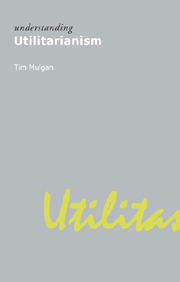8 - Practicality
Summary
One enduring criticism of utilitarianism has always been that, as it rests upon precise calculations of utility, it is unworkable. This chapter explores this objection, with a focus on the following questions. How does utilitarianism deal with uncertainty? Can utility be measured? Does utilitarianism presuppose that utility can be measured? If utility cannot be precisely measured, what guidance can utilitarianism offer?
The practical objection to utilitarianism is straightforward.
Utilitarianism tells us to maximize human happiness.
Therefore, if we do not know what would maximize human happiness, then we cannot know what utilitarianism tells us to do.
But we have no idea how to maximize human happiness.
Therefore, we have no idea what utilitarianism tells us to do.
We explore various utilitarian responses to this objection, and its impact on the shape of utilitarianism. Two kinds of uncertainty plague utilitarianism, as we do not know what will happen (practical uncertainty), and we do not know how to evaluate what will happen (uncertainty about values). We begin with practical uncertainty.
Actualism versus probabilism
Two buttons
The evil genius has locked you in a room with two buttons (X and Y). To escape you must push one of the buttons. Your innocent friend Bertold is strapped to an electric chair in another room. Independently, a computer generates a random number from 1 to 100. If you press button X and the number is 100, then Bertold is electrocuted.[…]
- Type
- Chapter
- Information
- Understanding Utilitarianism , pp. 149 - 166Publisher: Acumen PublishingPrint publication year: 2007



